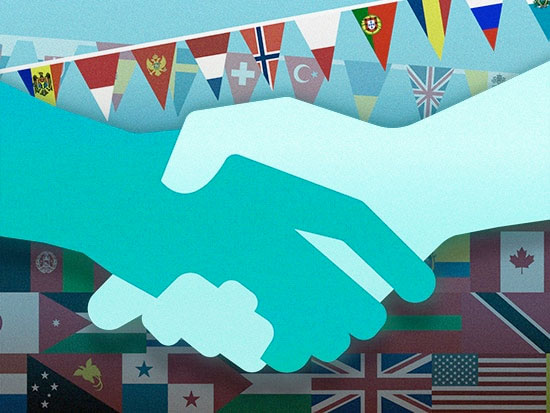 A new study from the University of Alabama at Birmingham uncovers the critical influence of formal and informal agreements on buyer-supplier opportunism in the marketplace, as well as the need for a moderating government to support businesses in agreements.
A new study from the University of Alabama at Birmingham uncovers the critical influence of formal and informal agreements on buyer-supplier opportunism in the marketplace, as well as the need for a moderating government to support businesses in agreements.
“Without agreements in place, buyers and suppliers find ways to take advantage of vulnerable opportunities, or opportunism,” said Simon Sheng, Ph.D., professor in the UAB Collat School of Business. “Our study looks at how different cultures effectively use formal and informal agreements to influence how business is conducted in the marketplace and how the government supports or alters the way business partnerships are managed.”
The study, “Institutions and opportunism in buyer-supplier exchanges: the moderated mediating effects of contractual and relational governance,” is published in the Journal of the Academy of Marketing Sciences, and identifies a bridge between the legal environment and opportunism.
Cultures and government policies in business differ from country to country. These differences impact how international business is conducted and agreements are made between buyer and supplier, particularly in emerging markets.
In thriving countries, the legal system regulates contractual agreements and creates trust among business partners. In emerging markets, opportunism is more severe because legal systems are not in place to enforce contractual agreements.
| In thriving countries, the legal system regulates contractual agreements and creates trust among business partners. In emerging markets, opportunism is more severe because legal systems are not in place to enforce contractual agreements. |
“Even if the government creates regulations in these emerging markets, contractual agreements between business partners present opportunism due to long legal processes and enforcement,” Sheng said. “Businesses have two options when coming to an agreement, contractual or written formal agreements, and/or relational agreements. In order for partnerships to be profitable and honest for transaction parties, we recommend both contractual and relational agreements to ensure proper follow-through.”
When government serves as the mediator, the legal environment is healthier, making contractual and relational agreements stronger. Businesses are less likely to use relational agreements but still develop strong relationships based on trust because of the government’s presence and the fact that there will always be a final outcome. The basic idea of a government’s providing support to businesses makes contracts more effective and allows for the development of trusting relationships. Buyers have more confidence in their suppliers when a firm legal system exists.
“In developing countries, the trend is to reduce contracts and make relational agreements,” Sheng said. “However, there is too much confidence in the handshake. This provides a door for opportunism to start and businesses to take advantage of one another.”
